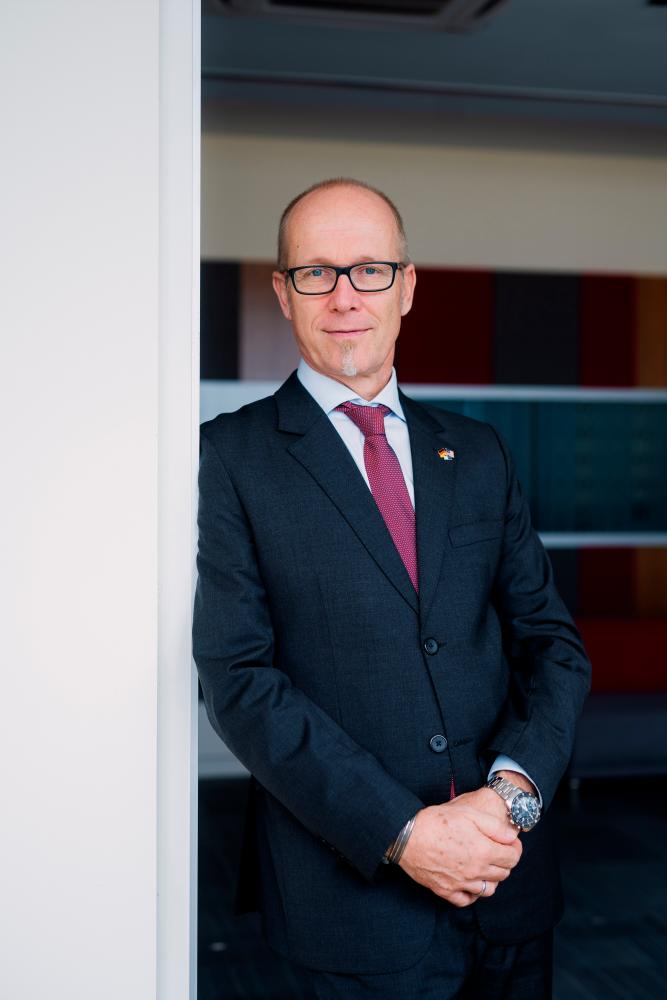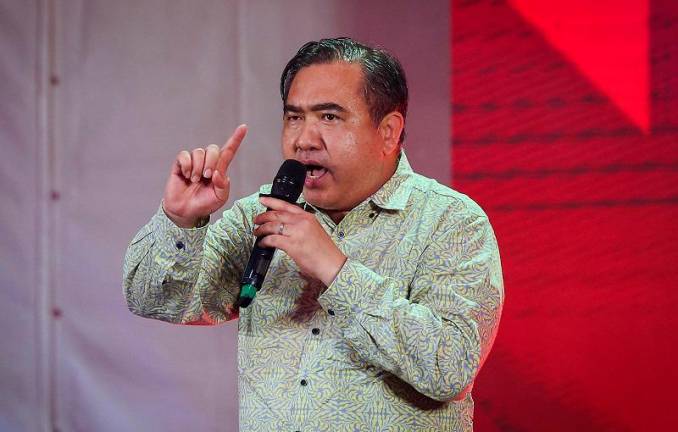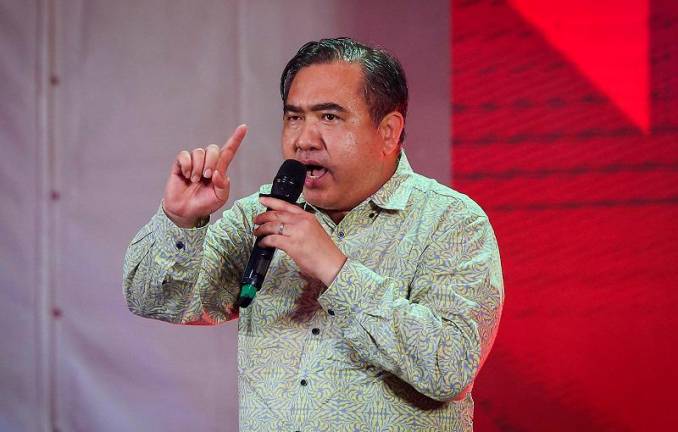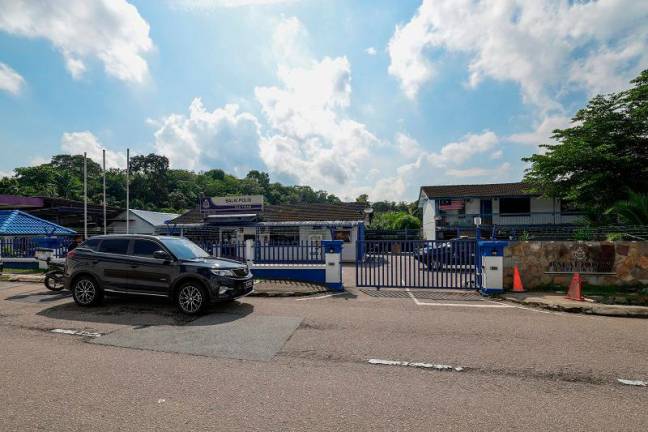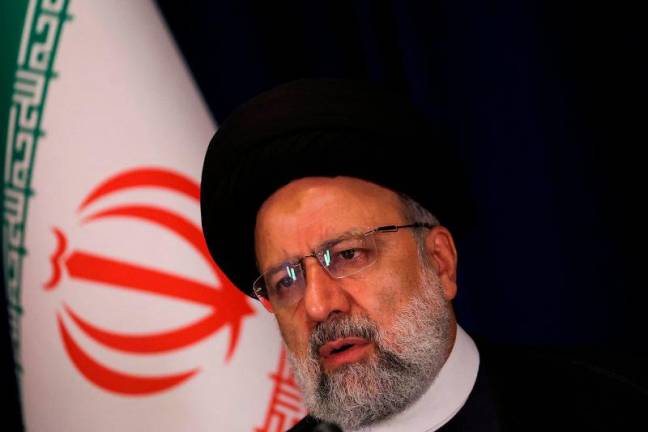THIS week, SunBiz chats with Malaysian-German Chamber of Commerce and Industry CEO Daniel Bernbeck (pix).
How has your life experience made you the leader you are today?
Having grown up as an expat’s child in the Middle East, I was taught quite early in my childhood and adolescent years the importance of communication across cultures, languages, and religions. This has silently and subconsciously shaped my view of the world and my fellow human beings more profoundly than I thought. This has shaped my belief in communication, in being open-minded and fearless to other people’s opinions and attitudes and this has been very influential in my role as a leader.
What traits do you look for in your talent or how do you decide who is right for a job?
Many years ago, I was fascinated by Sergey Brin’s “Airport Test”. It requires you to ask yourself if you could imagine spending an extended period of time with a person at an airport. It really taught me the understanding that qualifications on paper, which used to have a very high, if not the highest, value in my birth country Germany, are not all that counts. There is much more to consider than mere certificates and university degrees.
Implementing the Airport Test adds an interesting dimension to your assessment. However, in these unprecedented times, this simple test will probably not be enough to secure the right talent for your organisation.
Dynamic transformations of procedures, innovations of products and services cannot be achieved with a uniform group of like-minded people that you maybe love to hang out with at an airport for days. What organisations of today need would be a more diverse mix of people, of different ages, genders, cultures, and backgrounds.
I believe that the leaders of today need to understand much more than what is lacking in their corporate culture and how a job applicant could be a good fit to contribute to the company.
Leaders of today simply cannot stick to the old-fashioned methods of talent assessment and hiring as they need to be much more creative in their ways of thinking in finding the right talent.
How do you think the industry you are in will evolve?
As a chamber of commerce, we are offering a vast portfolio of consulting services to foreign investors and their business partners as well as offering platforms for networking. I expect this landscape to become much more digitalised than how we used to practise it. Services like ours will be expected to be provided 24-7, online, paperless, fast, efficient, and be much more affordable than in the past. That requires us to adopt more digital solutions, new interfaces to communicate with customers, and working attitudes that are much more client-focused.
Naturally, the pandemic has fundamentally impacted our working habits, as well as general rules and regulations inside many other organisations. That is why our team is becoming flexible and adaptable to meet the customer’s demands and provide a fulfilling customer experience. For the networking part, I believe that the experience of lockdowns and physical distancing practices will further increase the value of having a strong network to find the right contacts for the business world. I expect platforms like ours will gain relevance far more than we would have expected.
We all know about the industrial revolution, are we in for a technological revolution? Your thoughts.
I think so. The pandemic to me has shown one thing: companies that can venture fast into digital applications will stay ahead of the developments, thus gaining competitive advantages over their competitors. Industrial companies that have embraced the Fourth Industrial Revolution (IR 4.0) would have invested in the relevant technologies and trained their staff on how to use those technologies. That level of technological readiness will allow for those companies to adjust to any sudden disruption of the international supply chains earlier and more efficiently than the ones who are not prepared.
Also, the trend to relocate production, the so-called “glocalisation”, back from Asia to Europe, is expected to become more popular due to technological advancements in high-tech robotics or other low-staff manufacturing concepts. That increases the pressure on Malaysia, Thailand, Vietnam and Indonesia to raise their level of IR 4.0 readiness.
What do you want to accomplish in the next five years?
In our organisation, the management team has already set up a plan for the next five years to make our operations more productive and self-sustaining by focusing on efficient and customer-oriented processes. I hope that together we can make this plan work and transform our organisation into the best international chamber of commerce in Malaysia, both as a company as well as an attractive employer.
Personally, I hope that in five years from now I would have managed to get all my kids through school and into tertiary education, either in university or in technical vocational education and training. The latter is regarded as a very good path to a professional career in Germany.
Best piece of advice you ever received on your career.
I got the best career advice from the founder of the chamber of commerce that I previously worked for in Iran. He told me that a manager needs an “inner compass”. You need to know yourself, to know what you want and what you do not want, and you need to trust your compass to be able to eventually take a firm stand.
What he meant with that was not that a manager should not listen to other people’s opinions, advice, or criticism. He meant that when the stressful and difficult moments come, a manager needs to know deep inside what he really stands for to make the right decisions, to be trustworthy, and, most importantly, to be a real leader.
Most-admired business leader? Why?
I would have to say it is the late Bertha Benz, the wife of Carl Benz, one of the founding fathers of Mercedes Benz. She hailed from a family of merchants, so she understood that with just inventing and building but not selling the automobiles, they would’ve gotten bankrupt.
This is why in 1888, without her husband knowing, no permission from the authorities and no driver’s licence, she took the automobile that he had built and went on a 106km ride with two of her teenage sons. A trip that changed the world of industry because after that journey from Mannheim to Pforzheim, everyone wanted to have such an automobile!
Prior to the invention of the automobile, motorised carriages were designed and used only for short distances. With her understanding of marketing and by breaking the existing rules, she not only achieved a successful turnaround of their finances, but she also released the innovative power of this invention and brought about the automotive industry.
How do you stay abreast of issues affecting your industry?
I believe the only way for a manager to prepare for any type of issues and changes that could affect their business is to create a working atmosphere where the members of the team feel invited to release their creativity and innovative ideas. It is important for employees to feel that the leaders welcome new ideas, allow them to make mistakes, trust them in their work and care for them as individuals.
There is a lot of literature on the market but, in the end, it depends on you as a person and the personalities in your respective team. In times where change is required, you will find those in the team that pull the train forward together with you might even help convince those who resist the motion to follow suit.
Based on this concept, I believe an organisation will be better prepared to detect, understand and react to the need for change that eventually will arise for any industry.
If you could have an hour with any thought leader in the world, whom would it be and why?
Having recently read Barack Obama’s book titled The Promised Land, I truly believe that he did make significant and irreversible changes to his society. Despite a lot of criticism of his work as the president of the US, I was really intrigued by his humble description of his path to the White House, his worries and self-doubt, as well as his fight for a balance between the role of a politician and a family man.
As he was a trained lawyer like me, I believe I would be able to learn a lot from him on how to communicate and convince non-lawyers of the way we think and see the world. Most likely, that one hour would be far too short.
What has been the biggest challenge you have faced? What did you learn from it?
There was certainly a time where I had to manage my organisation through several years of internal issues that I inherited from my predecessor, and it was the biggest challenge I have faced in my career. Thankfully, they are all resolved and what the experience taught me was that in the end, it is your inner strength and resilience, your ability to stick to your professional, ethical and moral standards that give you the necessary grit to persevere and successfully reach your goals.
What was the most outlandish business proposal you have ever heard of?
I once received such a business proposal and if I had agreed to it, I would have certainly destroyed the company I worked for, including the jobs of our employees, my career and the future of my family.
Relying on my inner compass, it did not take more than a millisecond to know that I could not and would not accept the proposal. The only remaining challenge was to find a way out by using the right words to politely decline the proposal.
That incident taught me that true leadership requires more than skills and I also learned several things about myself. In such stressful moments, where you have to react and take consequential decisions very quickly, I was able to adapt to the challenge, stuck to my values, and rely on my inner compass to make the right decision.
How do you expect policies on climate change to impact businesses in the future?
We obviously cannot continue without doing anything to improve the situation. However, when it comes to introducing new environmental policies to help the planet, there will always be some cost to be incurred or sacrifices that need to be made.
Lawmakers and industry leaders must be careful in avoiding any sort of major resistance from the public and their stakeholders. Enacting changes must be within a reasonable level that would not disrupt economies beyond their capabilities to withstand it. I believe that it is of utmost importance to empower society and the economy to embrace the necessary change because in order to reduce the human impact on our climate as fast and as much as possible, we need to develop the right technologies and generate the funds needed to implement them.
A must-read for every business owner/manager is ...
The book Factfulness of the late Swedish author Hans Rosling. I think everybody should read that eye-opening book, not only managers and business owners.
Tell us a joke.
Haha, we Germans are famous for our peculiar sense of humour. Therefore, I prefer to give you two quotes from one of our famous comedians, Karl Valentin, dealing with times of change. He wisely said: “Today we are living in the good ol‘ days of tomorrow.”, and “In the past even the future looked brighter!”



